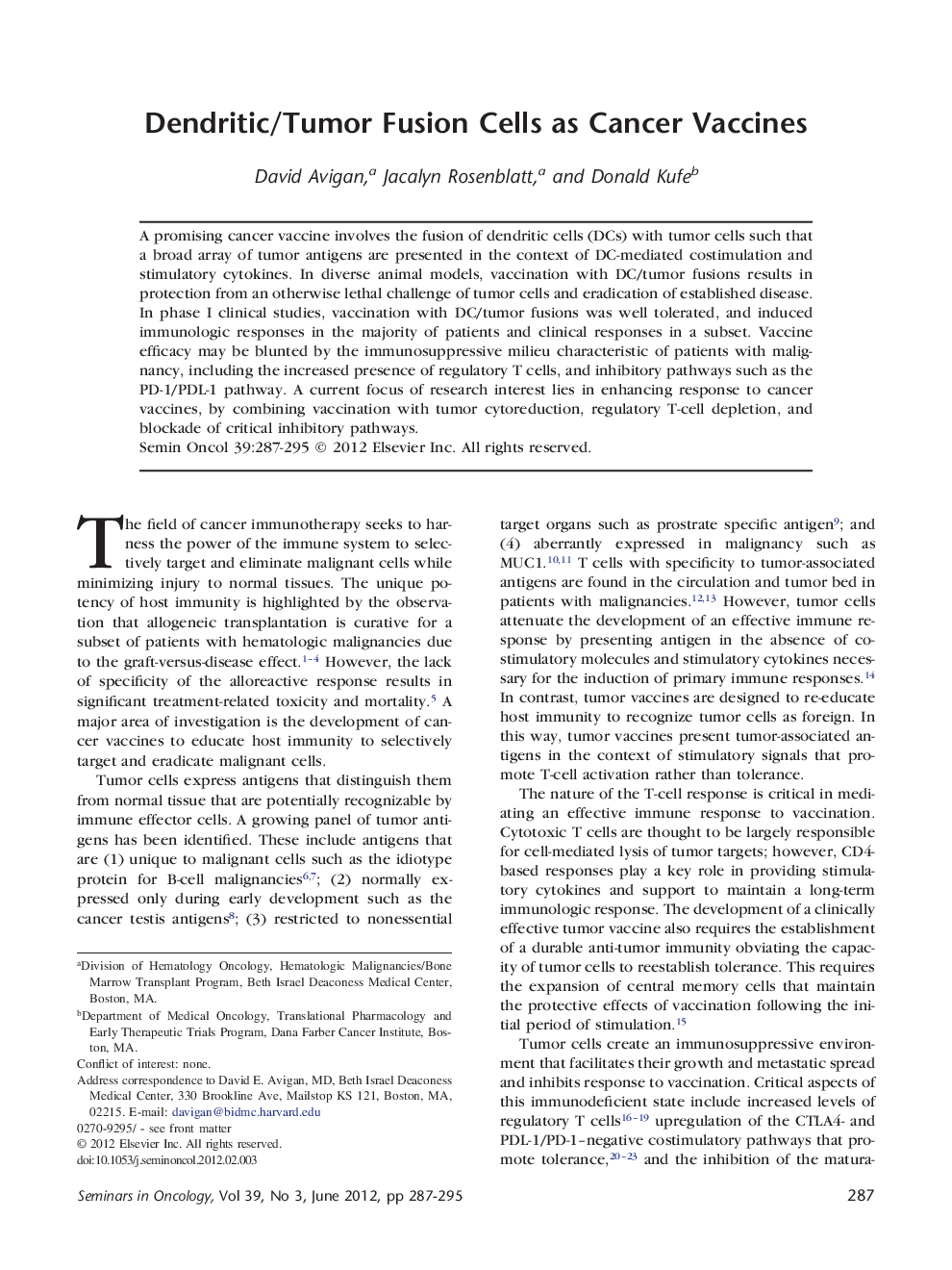| Article ID | Journal | Published Year | Pages | File Type |
|---|---|---|---|---|
| 2162215 | Seminars in Oncology | 2012 | 9 Pages |
Abstract
A promising cancer vaccine involves the fusion of dendritic cells (DCs) with tumor cells such that a broad array of tumor antigens are presented in the context of DC-mediated costimulation and stimulatory cytokines. In diverse animal models, vaccination with DC/tumor fusions results in protection from an otherwise lethal challenge of tumor cells and eradication of established disease. In phase I clinical studies, vaccination with DC/tumor fusions was well tolerated, and induced immunologic responses in the majority of patients and clinical responses in a subset. Vaccine efficacy may be blunted by the immunosuppressive milieu characteristic of patients with malignancy, including the increased presence of regulatory T cells, and inhibitory pathways such as the PD-1/PDL-1 pathway. A current focus of research interest lies in enhancing response to cancer vaccines, by combining vaccination with tumor cytoreduction, regulatory T-cell depletion, and blockade of critical inhibitory pathways.
Related Topics
Life Sciences
Biochemistry, Genetics and Molecular Biology
Cancer Research
Authors
David Avigan, Jacalyn Rosenblatt, Donald Kufe,
